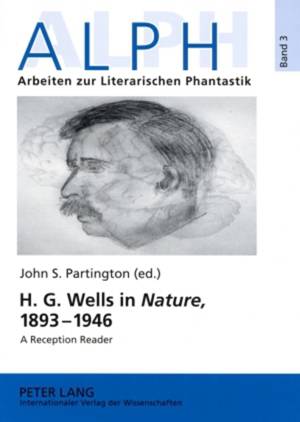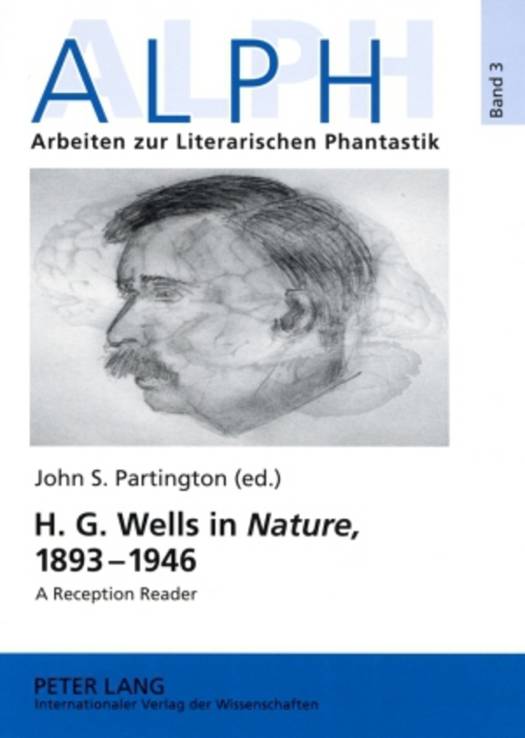
- Afhalen na 1 uur in een winkel met voorraad
- Gratis thuislevering in België vanaf € 30
- Ruim aanbod met 7 miljoen producten
- Afhalen na 1 uur in een winkel met voorraad
- Gratis thuislevering in België vanaf € 30
- Ruim aanbod met 7 miljoen producten
Zoeken
H. G. Wells in «Nature», 1893-1946
A Reception Reader
€ 142,45
+ 284 punten
Omschrijving
Since its foundation in 1869 Nature has consistently been the pre-eminent English-language science journal, and for a period of over fifty years, H. G. Wells was a central feature within its pages. In H. G. Wells in 'Nature', John S. Partington collects all of Wells's writings in Nature, all of the reviews of his works published by Nature, and all of the journal's reportage that featured him. In addition to this core material, however, Partington has included the many responses that these essays and reviews received, thereby offering the reader a uniquely contextualised history of Wells's reception in Nature. From the first review Wells received in 1893 to his obituary notice in 1946, this volume presents a fascinating history of Wells's work and thought as filtered through the prism of Nature. During his long career no other journal featured Wells within its pages so consistently, and with contributions by such eminent thinkers as Richard Gregory, E. Ray Lankester, J. S. Haldane, Lancelot Hogben, F. S. Marvin, A. Carr-Saunders, J. B. S. Haldane, Karl Pearson and Hilaire Belloc, Nature can truly be said to have played a key role in moulding opinion about Wells's work and thought.
«John S Partington has gone some way to making this side of his oeuvre better known with a tightly-packed volume that collects together not only Wells's own contributions to the prestigious science magazine Nature over more than half a century, but also responses to those contributions, as well as reviews of his books, and other items which include his name. An excellent introduction sets the scene generally and lucid and thorough section commentaries outline what Wells and his reviewers were saying, and the debates that he generated.» (Tom Ruffles, NTHPosition)
«John S Partington has gone some way to making this side of his oeuvre better known with a tightly-packed volume that collects together not only Wells's own contributions to the prestigious science magazine Nature over more than half a century, but also responses to those contributions, as well as reviews of his books, and other items which include his name. An excellent introduction sets the scene generally and lucid and thorough section commentaries outline what Wells and his reviewers were saying, and the debates that he generated.» (Tom Ruffles, NTHPosition)
Specificaties
Betrokkenen
- Uitgeverij:
Inhoud
- Aantal bladzijden:
- 518
- Taal:
- Engels
- Reeks:
- Reeksnummer:
- nr. 3
Eigenschappen
- Productcode (EAN):
- 9783631571101
- Verschijningsdatum:
- 1/07/2008
- Uitvoering:
- Paperback
- Formaat:
- Trade paperback (VS)
- Afmetingen:
- 148 mm x 210 mm
- Gewicht:
- 689 g

Alleen bij Standaard Boekhandel
+ 284 punten op je klantenkaart van Standaard Boekhandel
Beoordelingen
We publiceren alleen reviews die voldoen aan de voorwaarden voor reviews. Bekijk onze voorwaarden voor reviews.










